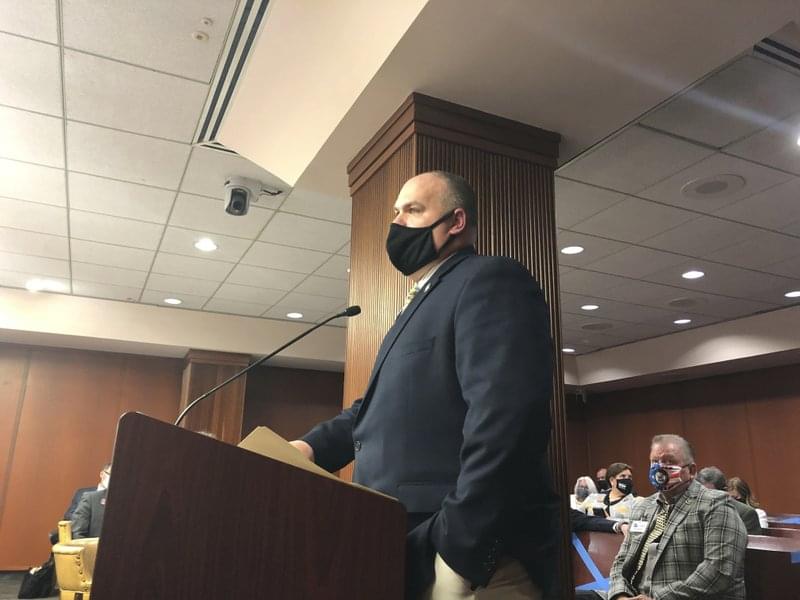
By JEFF AMY
ATLANTA (AP) — A proposal that would ban transgender girls and women in Georgia from playing on school and college sports teams is headed for changes after a committee hearing in which opponents attacked it as illegal under federal law and needlessly cruel.
Rep. Philip Singleton, a Sharpsburg Republican, said Tuesday that House Bill 276 is needed to prevent girls from unfairly losing out to those who were born as males.
“Giving a biological man the ability to compete against biological women is bad for our girls and bad for our children,” Singleton told a House Education subcommittee.
The committee heard testimony on the bill, but took no action. Subcommittee chairman Will Wade, a Dawsonville Republican, said he wanted to meet with Singleton to discuss changes, including some Singleton proposed during Tuesday’s meeting. It’s unclear whether the bill will advance or what those changes will be.
The bill would ban transgender girls from competing for public high schools, as well as any private opponents of public high schools. It would also forbid them from competing for any public university in Georgia, although it doesn’t try to govern the opponents of public universities.
Opponents say the bill will single out a group that’s already among society’s most marginalized, making them subject to even more harassment.
“My daughter happens to be transgender and there happens to be a lot of misunderstanding about what that really means,” said Jen Slipakoff of Kennesaw, who said her 13-year-old transgender daughter plays lacrosse. “It’s not dangerous for my daughter to be on the same sports team as her girlfriends. She’s not taking the spot of another more deserving girl, as if my daughter deserves less than. She’s not a threat.”
Proponents of the bill argue that transgender girls, because they were born male, are naturally stronger, faster and bigger than those born female.
“These are fundamental biological differences between males and females,” Cole Muzio, president and executive director of the Christian conservative Family Policy Alliance of Georgia, told committee members.
The bill is part of a nationwide push by conservative groups. The Georgia measure is similar to a 2020 Idaho law that’s been blocked by a federal judge while a lawsuit is decided. Some other states, such as Texas, have rules requiring athletes to play on teams matching the sex on their birth certificate.
Lawmakers have filed bills seeking to restrict transgender students’ sports participation in a number of other states including Montana, Oklahoma, South Carolina, Tennessee, Kentucky, North Dakota, and New Hampshire.
It’s unclear how many transgender athletes are currently competing in Georgia. Robin Hines, executive director of the Georgia High School Association, said the association doesn’t track the issue and accepts decisions made by member schools regarding which students play.
Singleton objects to the characterization that the bill is aimed at transgender people, saying he’s helping girls.
“We don’t single transgender students out,” he said. “We’re protecting women.”
Opponents say the bill would violate Title IX of federal education law prohibiting sex discrimination, an executive order signed by Democratic President Joe Biden that prohibits discrimination based on gender identity in school sports and elsewhere, as well as rulings by the U.S. Supreme Court and 11th U.S. Circuit Court of Appeals.
“We believe that HB 276 creates a definition and requires actions inconsistent with Title IX and court decisions,” wrote Angela Palm, a lobbyist for the Georgia School Boards Association, in opposing the bill.
Singleton and other conservatives disagree with that interpretation of Title IX, though. He said Tuesday that Biden’s order has “zero force of law.” But others say the measure won’t withstand court scrutiny.
“Surely you would agree with me that we have to pass constitutional laws here,” said Rep. Matthew Wilson, a Brookhaven Democrat who noted he is the only openly gay member of the House Education Committee.
___
Follow Jeff Amy on Twitter at http://twitter.com/jeffamy.